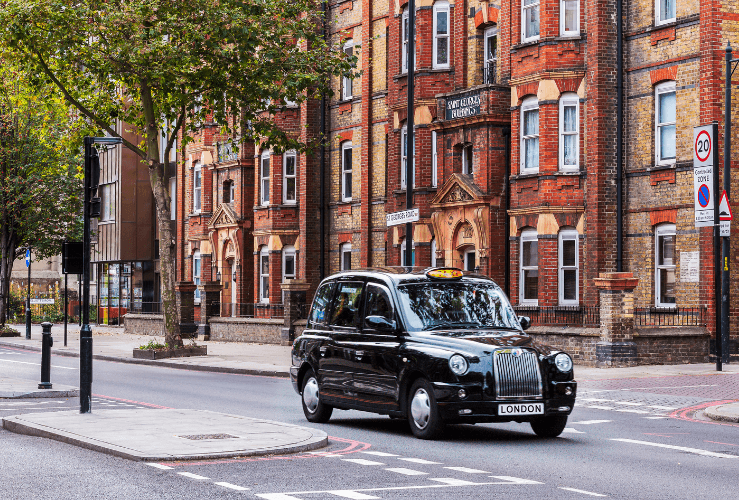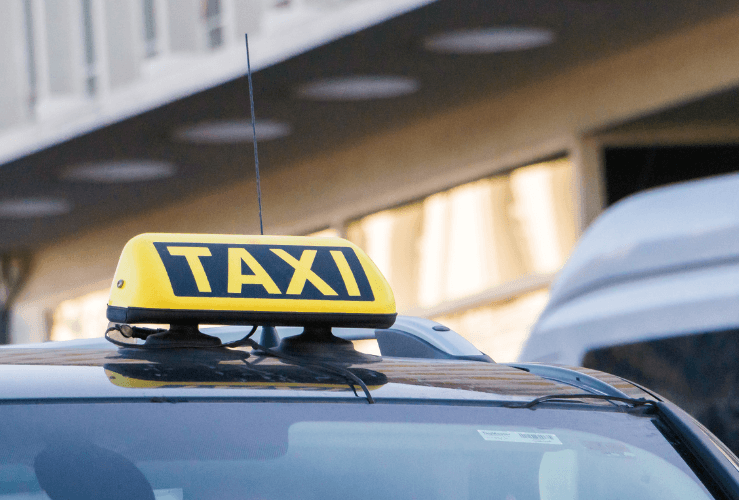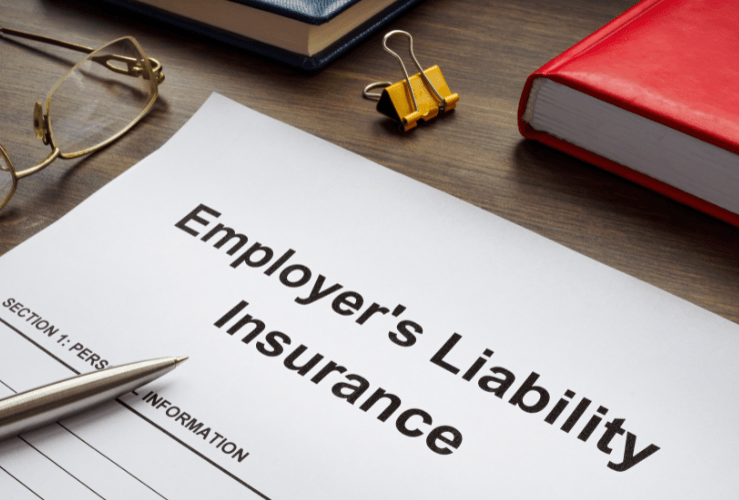Learn about insurance for taxi drivers in the UK, including optional coverage products that could give you extra peace of mind on the road.
Thinking about becoming a taxi driver? If so, it’s important to understand the different insurance requirements. Unfortunately, you can’t just install a meter or download an app and start working: you need to take out specialist policies that will protect you from being liable if someone is injured - or if their property is damaged - while you are driving them around.
The following information covers requirements for both public hire (e.g. London black cabs) and private hire drivers (e.g. Uber drivers).

Before you take out taxi insurance coverage, you’ll need…
A valid UK driving licence
It goes without saying that you’ll need a valid UK driving licence before you can drive a taxi. Thankfully, there is no special ‘taxi driving licence’ - a regular licence is all you need. However, you’ll need to have held your licence for at least 12 months (3 years in London).
Record and DBS checks
Many local authorities (and Transport for London) also demand that drivers have a clean record, with no DUIs (Driving Under the Influence), or serious speeding offences.
You’ll also need to do an enhanced Disclosure and Barring Service (DBS) check, which is a detailed look into any convictions, cautions or warnings you may have had.
Failure to provide the above could mean your local authority denies you a taxi licence.
Local authorities may also require you to pass a taxi driving exam, through providers like IAM RoadSmart and The Blue Lamp Trust.

Insurance taxi drivers need (5 options)
Whether you plan to pick passengers up by the roadside, or do pre-booked trips only, you’ll need a special type of insurance designed for taxis.
There are two main options for UK taxi drivers (Public or Private Hire), plus another for London black cabs. There’s also short term taxi insurance, and ride-hailing insurance.
Here’s a close look into what insurance taxi drivers need.
Public Hire Insurance
Confusingly, Public Hire Insurance goes by some other names, including Hackney Carriage Insurance and Public Taxi Insurance. This insurance type is for taxis that can be flagged down or hailed by members of the public.
It is designed to cover specific risks associated with hackney carriage taxis - chiefly those related to picking up passengers on public streets.
What’s usually covered?
- Covers third-party liability, passenger liability, and damage to the vehicle.
- Includes coverage for picking up passengers without prior booking.
- Often includes public liability insurance to protect against claims from passengers or the public.
Private Hire Insurance (Private Hire and Reward)
Private Hire Insurance - also known as Private Hire and Reward Insurance - meanwhile, is designed for pre-booked taxis.
You’ve probably seen notices like ‘pre-booked journeys only’ on private hire taxis; this underlines the fact that you can't just hail down or hop in a pre-booked taxi if you see one by the side of the street, because they’re not insured for such activities.
This type of insurance is for traditional pre-booked taxi firms, as well as for Uber drivers (although specific ride-hailing cover is also available - see below).
What’s usually covered?
- Covers third-party liability, passenger liability, and damage to the vehicle.
- Specifically covers pre-booked trips only (not roadside pickups).
- May include additional coverage for lost bookings or business interruption.
PCO Insurance - for London Black Cabs
A third type of cover is PCO insurance. This stands for Public Carriage Office, and is a legal requirement for black cabs and mini cabs operating in the Transport for London (TfL) area.
It works in a very similar way to Public Hire Insurance, but relates to London.
Short-Term Taxi Insurance/Part Time Taxi Insurance
Another, lesser known, type of cover is Short Term Taxi Insurance, which is sometimes called Part Time Taxi Insurance. As these names imply, this cover is for those who plan to operate a taxi service in the short term, usually from one week upwards.
It’s typically a lot cheaper than annual taxi insurance, whether of the public or private kinds.
Uber/Ride-Hailing Insurance
This works in a similar way to Private Hire Taxi Insurance, but is designed for drivers who work for ride-hailing apps like Uber.
These policies focus on offering coverage for both work and non-work activities.
Insurance for taxi drivers: Coverage levels
Just as with regular car insurance, you’ll be able to choose different coverage levels, namely:
- Third-Party Only (cheapest, but minimal protection)
- Third-Party, Fire & Theft (mid-range)
- Comprehensive (most expensive, but best protection)
Public Liability Insurance - Required by most Councils
Alongside one of the insurance types above, you’ll also probably need Public Liability Insurance. Most councils will ask to see evidence of this before issuing a taxi operating licence.
Even if it’s not required, it’s extremely prudent to have it in place.
Public Liability Insurance covers you if your taxi injures (or even kills) a passenger or member of the public, or damages their property somehow. It’s sometimes bundled with the above types of cover, but not always. It covers you for any legal fees that might arise from the above events. Such fees can be considerable, which is why Public Liability Insurance is likely to give you peace of mind when doing your job.

Employer’s Liability Insurance – Required by law (If you employ others)
This is legally required if you hire other drivers or staff, as defined under the Employers’ Liability (Compulsory Insurance) Act 1969.
You’ll need a minimum cover of £5 million.
This covers you as an employer if an employee is injured or falls ill due to their work, or sustains damage to their property.
It also covers you for legal costs, should an employee sue you due to alleged work-related health issues.
It would also cover compensation payments - as might be awarded for medical costs, loss of earnings, or successful settlements etc.
Note that former employees can also make a claim if they develop health issues relating to the work they did for you. Any associated costs would also be covered under this insurance.
Other useful insurance for taxis in the UK
- Breakdown Cover – Not a legal requirement, but breakdown cover for your taxi is essential for avoiding long downtimes. Because you could break down a long way from home, it’s sensible to have Nationwide Recovery as part of any policy. Other useful benefits for taxi drivers include Home Assist, Key Assist, and Emergency Overnight Accommodation.
- Personal Accident, Legal Expenses, and Windscreen Cover – Optional but useful for financial protection.
If you work with a ride hailing app like Uber, you may have coverage for some of the above.
Average taxi insurance price
Just as with regular car insurance, providers look at a range of factors when determining how much you’ll pay for cover. These include location (cities may be deemed higher risk, for example); driving history (clean records will likely result in cheaper cover); vehicle type; annual mileage; level of cover; and any No Claims Bonuses.
Here’s a rough guide to average taxi insurance prices in the UK:
- Public Hire Insurance: £3,000 – £6,000 per year
- Private Hire Insurance: £2,000 – £4,000 per year
- Uber/ride-hailing insurance: £1,500 – £3,500 per year




